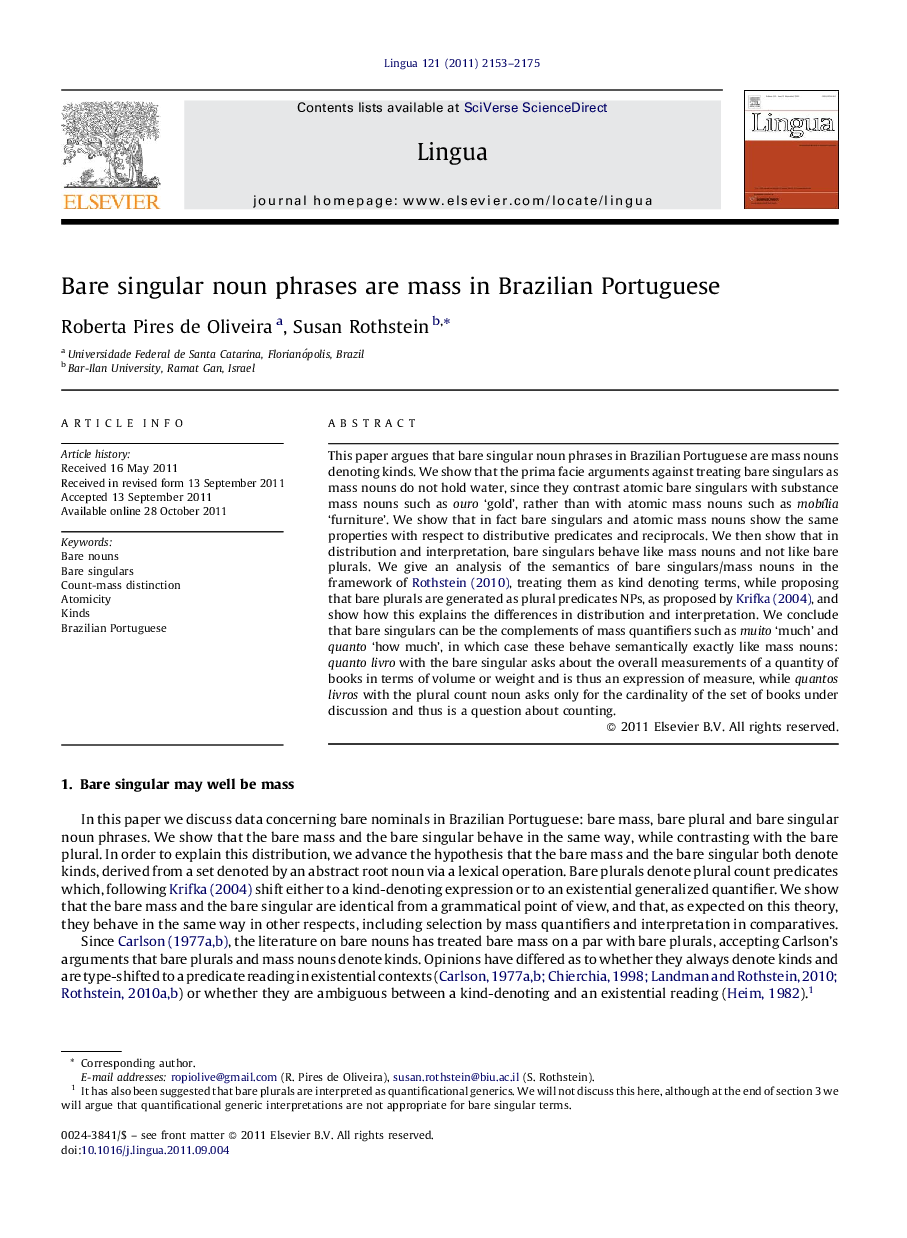| Article ID | Journal | Published Year | Pages | File Type |
|---|---|---|---|---|
| 935639 | Lingua | 2011 | 23 Pages |
This paper argues that bare singular noun phrases in Brazilian Portuguese are mass nouns denoting kinds. We show that the prima facie arguments against treating bare singulars as mass nouns do not hold water, since they contrast atomic bare singulars with substance mass nouns such as ouro ‘gold’, rather than with atomic mass nouns such as mobília ‘furniture’. We show that in fact bare singulars and atomic mass nouns show the same properties with respect to distributive predicates and reciprocals. We then show that in distribution and interpretation, bare singulars behave like mass nouns and not like bare plurals. We give an analysis of the semantics of bare singulars/mass nouns in the framework of Rothstein (2010), treating them as kind denoting terms, while proposing that bare plurals are generated as plural predicates NPs, as proposed by Krifka (2004), and show how this explains the differences in distribution and interpretation. We conclude that bare singulars can be the complements of mass quantifiers such as muito ‘much’ and quanto ‘how much’, in which case these behave semantically exactly like mass nouns: quanto livro with the bare singular asks about the overall measurements of a quantity of books in terms of volume or weight and is thus an expression of measure, while quantos livros with the plural count noun asks only for the cardinality of the set of books under discussion and thus is a question about counting.
► Bare singular NPs in Brazilian Portuguese are like mass nouns in distribution and interpretation. ► Bare singular and mass NPs differ from bare plurals. ► Bare singular and mass NPs are lexical items denoting kinds, bare plurals are count predicates. ► An account of the above is given, based on Rothstein 2010's theory of the count/mass distinction ► Bare singulars occur with mass quantifiers, supporting this account.
